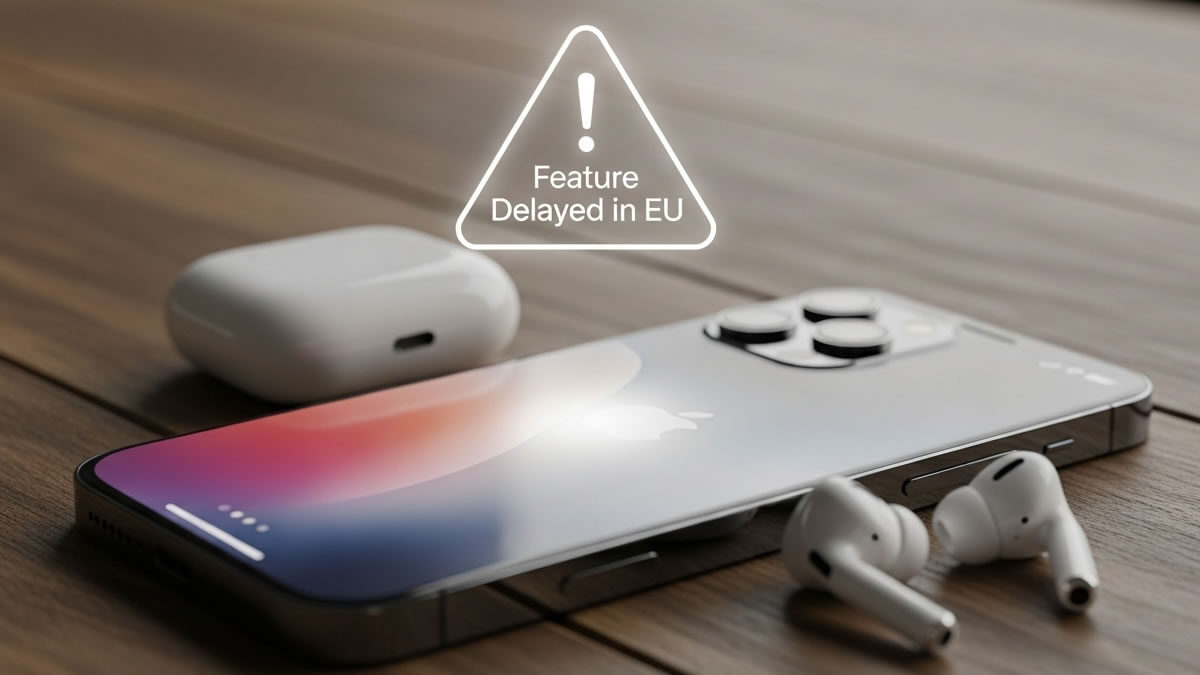Since it went into force three years earlier, the European Union’s Digital Markets Act (DMA) has attempted to control large technology platforms’ anti-competitive conduct, primarily by making it simpler for consumers to shift platforms and transfer information among gadgets and applications.
Stay up to date with the latest technology in TheTechCrunch.info, which covers artificial intelligence, mobile and web apps, modern things, cyber security, and general technical news. From AI’s successes to chat and generative tools, such as smartphones, laptops, and wearables’ special reviews, TheTechCrunch gives an insight into this case.
Major technology companies have not welcomed that, naturally, and now Apple has stepped forward fighting against the regulation. The corporation on Thursday accused the EU’s enforcement of the DMA of postponing the rollout of several features within the EU, saying the rules are leading to an inferior experience for Apple customers in the region by exposing them to additional threats and limiting options.

The iPhone manufacturer also urged the European Commission to revoke the DMA until a more suitable fit-for-purpose legislative measure is implemented, the Financial Times noted.
Because the DMA obliges firms to construct interoperability with outside devices and programs, Apple asserts it must hold back some functions in the EU, including its innovative live translation tool for AirPods, iPhone mirroring on Macs, and the visited locations and preferred pathways option on Maps. The catalog of deferred capabilities will probably grow longer, the corporation stated.
Interoperability Versus User Privacy
As the company portrays it, the DMA’s interoperability demands are difficult to reconcile with the firm’s dedication to user confidentiality. The law obligates companies to open their ecosystems to rivals by ensuring proprietary apps and features work with third-party hardware and software.
Yet Apple says its teams are struggling to discover a method to achieve this without endangering user information. Apple wrote that it has suggested modifications to these functions that would safeguard its users’ data, but up to now, the European Commission has rejected its ideas.
According to the European Commission, under the DMA, it is unlawful for Apple to distribute these functions to Apple users until it introduces them to competitors’ products. If Apple delivered them sooner, it would be fined and possibly forced to halt shipping its goods inside the EU, the firm added in a blog post.
Past Fines and Ongoing Concerns
Apple’s article appeared a few months after the EU penalized the corporation over €550 million for breaching the DMA by compelling app creators to process payments for apps and services within Apple’s ecosystem. The firm has challenged the ruling.
Apple also contends that allowing consumers to install apps from alternative app stores and employ different payment methods, as the DMA compels, is heightening the probability of scams, malware, and fraud hazards to its customers.
It has been more than a year since the Digital Markets Act was enacted. Over that period, it has become evident that the DMA is producing a poorer experience for Apple customers in the EU. It is subjecting them to fresh threats and interrupting the simple, seamless manner their Apple products integrate. And as new technologies appear, Apple’s European customers’ products will only lag further behind, the corporation wrote.
European Commission Response
We are not surprised by Apple’s lobbying document to revoke the DMA because Apple has disputed every element of the DMA since its implementation, said EC spokesperson Thomas Regnier in a press briefing on Thursday. This undermines the company’s message of wanting to be completely cooperative with the Commission.
We facilitated DMA compliance when we devised the specification decisions, and we told Apple how they could comply regarding interoperability. After two months, Apple returned and asked us to discard everything.
Nothing in the DMA obliges companies to reduce their privacy levels or their security levels. It is simply about whether our users have more assortment, opening up the European bazaar, and allowing companies to compete on an equal basis, Regnier added.
Conclusion
The conflict between Apple and the European Commission over the Digital Markets Act highlights the rising tension between novelty, competition, and user safety in Europe’s digital economy. Apple argues that the DMA slows the delivery of new features and undermines its carefully skillful security replicas, while regulators highlight that the law only makes a fair market and more choices.

As this debate endures, the result will shape how rapidly European customers get the latest Apple technologies, how much regulatory control Apple maintains over its networks, and how far governments can go in modifying international tech giants.
Explore a complete hub for the latest apps, smart things, and security updates online, ranging from AI-operated solutions and automation tools. TheTechCrunch.info offers in-depth articles, comparisons, and specialist analysis designed to understand the rapidly changing technology. Whether you are keen on robotics, data protection, or the latest digital trends.


